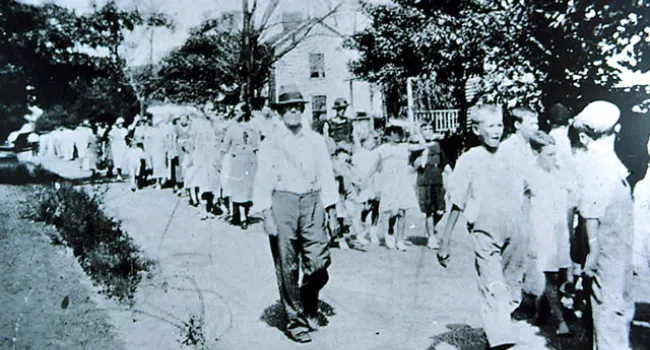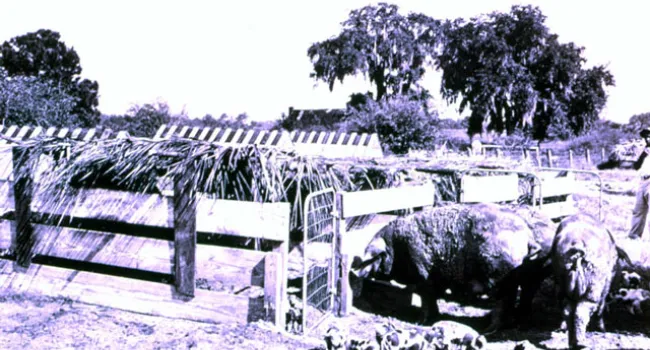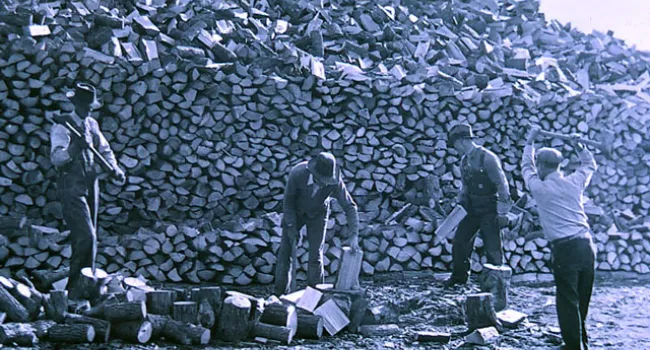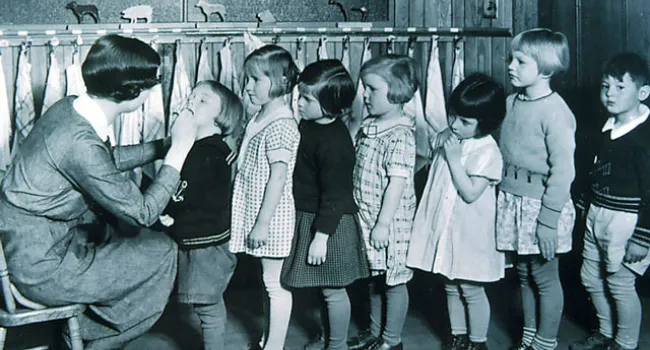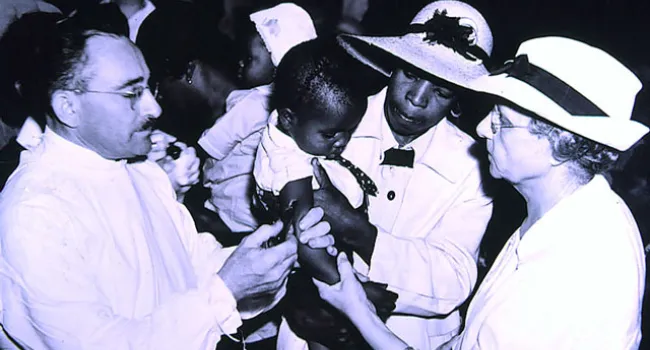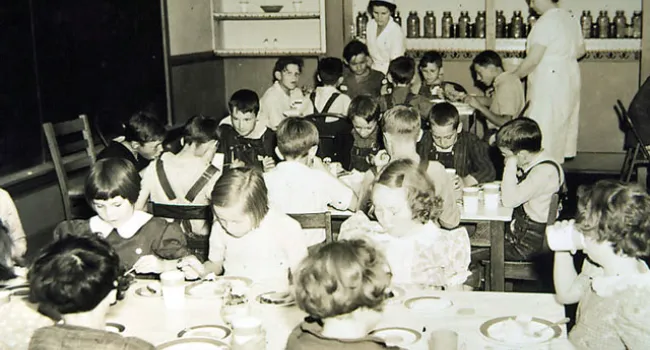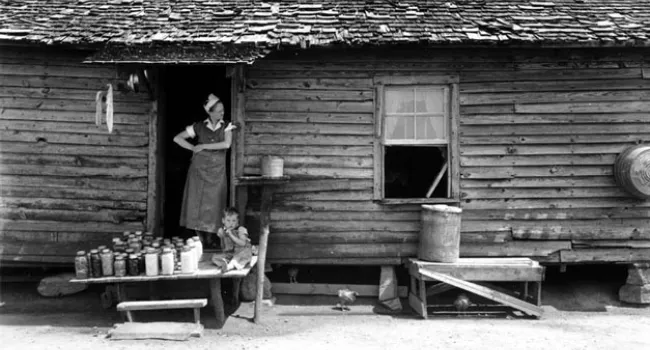
The Great Depression, beginning with the stock market crash in 1929, brought hardship to South Carolinians. Much of the South was poor long before the Depression because, as an agricultural region, it had not shared in the industrial prosperity of the 1920s. As the economy of the nation as a whole declined, the price of South Carolina's staple crop, cotton, dropped even lower. By 1932, farm incomes in South Carolina were less than half of what they had been in 1929--when things were already bad! Banks failed because people who lived in the communities where they were located had no money and could not repay mortgages or other loans. As family incomes declined, so did tax revenues. The state government and the local governments did not have enough income to pay their own employees, including teachers in the public schools. The state legislature passed a bill to pay teachers through these notes, or promises to pay them real money later, plus 6 percent interest.
Courtesy of the South Carolina Department of Archives and History.

